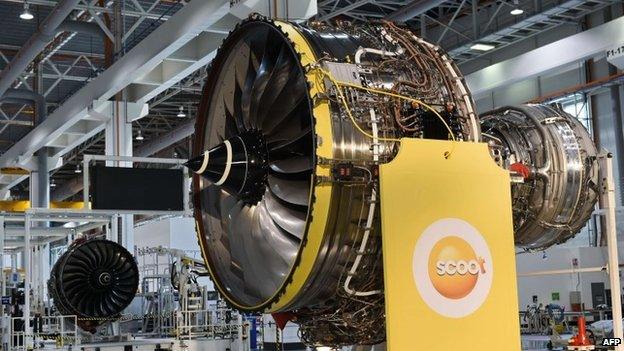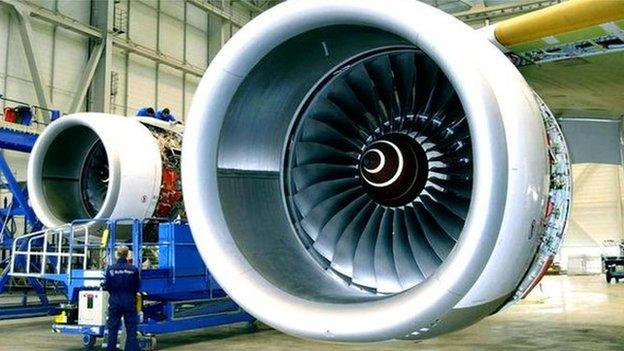Rolls-Royce warns on 2015 profit
- Published

Rolls-Royce has warned that its profits for this year could be as much as 13% lower than last year.
It said, external the recent sharp fall in oil prices had "increased uncertainty for many of our markets and customers".
Rolls said profits in 2015 would be between £1.4bn and £1.5bn, having previously said they would be flat or 3% lower at worst.
Underlying pre-tax profits in 2014 fell 8% to £1.62bn, roughly in line with guidance given in October.
Underlying revenue fell in 2014 for the first time in a decade, dropping 6% to £14.6bn, on lower defence spending and commodity prices.
"Since we last gave guidance, the external environment has deteriorated in some of our major markets," the company said.
"In particular, oil prices have halved over this period, creating increased uncertainty for many of our markets and customers, particularly in Marine Offshore."
Shares in Rolls-Royce fell in early trade but then recovered to close up 4.3% at 944.50p.
'Challenging conditions'
Rolls-Royce chief executive John Rishton said: "We have met guidance for 2014 revenue and profit in challenging conditions while continuing to build strong foundations for future growth."
He added 2014 had been "a mixed year" and said the company was taking decisive action to improve its financial performance, which included a major restructuring programme.
Rolls-Royce is restructuring its aerospace division, which it said last year is expected to lead to the loss of 2,600 jobs.
By the end of 2014, 545 people had left the company voluntarily. The majority of job cuts are expected to be completed this year.
The world's second largest manufacturer of aircraft engines also closed five plants and is in the process of consolidating production in steering gear in Norway.
In its civil aerospace business, Rolls Royce said it had invested in capacity required to meet its order book, but delays in a number of customers' programmes had meant that some of some of this extra capacity had come on stream before it was needed, leaving the firm with underused facilities.
- Published17 October 2014

- Published8 January 2015
